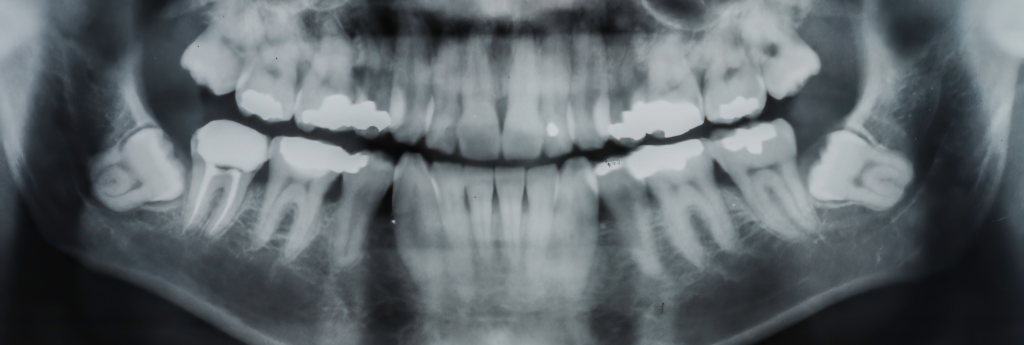Everything You Need to Know About Wisdom Teeth: Issues, Removal, and Recovery

Wisdom Tooth: What You Need to Know
The emergence of wisdom teeth is a common dental milestone, but for many, it’s also a source of discomfort and concern. These third molars typically appear in your late teens or early twenties, often marking the final stage of dental development. However, wisdom teeth can cause several issues, which may require removal. In this blog, we’ll explore what wisdom teeth are, common problems associated with them, and why extraction is sometimes necessary.
What Are Wisdom Teeth?
Wisdom teeth are the third set of molars located at the very back of your mouth. They’re the last teeth to develop, usually between the ages of 17 and 25. In some cases, people are born without them or may have only one or two. While wisdom teeth were essential for our ancestors who had diets rich in tough, fibrous foods, modern diets have made these molars less necessary.
Common Issues with Wisdom Teeth
Because wisdom teeth come in much later than other teeth, they often cause problems due to lack of space in the jaw. Here are some of the most common issues:
Impaction: A wisdom tooth is considered impacted when it doesn’t fully emerge from the gum line. Impacted teeth can cause pain, swelling, and infections because they can’t break through the gums properly.
Crowding: If your jaw is too small to accommodate the new molars, wisdom teeth can push your existing teeth out of alignment, causing crowding or shifting, which can affect your smile or bite.
Cavities: Wisdom teeth are hard to clean, as they are located at the back of the mouth. As a result, food and bacteria can get trapped around them, leading to cavities or gum disease.
Infection: Pericoronitis, or infection of the tissue surrounding a partially erupted wisdom tooth, is common. It can cause swelling, pain, and difficulty in opening the mouth.
Do You Need Wisdom Teeth Removal?
Not everyone needs to have their wisdom teeth removed. If your wisdom teeth come in properly aligned and don’t cause pain or complications, they may not require extraction. However, dentists typically recommend removal in the following cases:
- Impacted Teeth: As mentioned earlier, impacted wisdom teeth can cause pain and infections, making removal necessary.
- Crowded Teeth: To avoid the shifting of other teeth and maintain alignment, extraction may be advised.
- Repeated Infections: If wisdom teeth frequently cause gum infections or pain, it’s best to remove them to prevent further issues.
- Cysts or Tumors: Rarely, impacted teeth can form cysts or tumors, damaging nearby bone or teeth, necessitating removal.
The Extraction Process
If your dentist or oral surgeon recommends wisdom tooth extraction, don’t worry—the procedure is common and straightforward. Here’s what you can expect:
Consultation: Your dentist will take X-rays to assess the position of your wisdom teeth and determine if extraction is necessary.
Anesthesia: Before the procedure, you’ll receive local, sedation, or general anesthesia to ensure comfort during the surgery.
Removal: The dentist or oral surgeon will make an incision in the gum tissue, remove any bone blocking the tooth, and then extract the wisdom tooth. Sometimes, the tooth may be divided into smaller pieces for easier removal.
Recovery: After extraction, you may experience some swelling and discomfort for a few days. Your dentist will provide you with care instructions and pain relief recommendations to aid in your recovery.
Recovery and Aftercare Tips
Post-surgery recovery can take a few days to a week, depending on the complexity of the extraction. Here are a few aftercare tips to ensure a smooth recovery:
- Apply Ice: Use an ice pack on your face to reduce swelling.
- Avoid Hard Foods: Stick to soft foods like yogurt, soups, and smoothies for the first few days.
- Don’t Smoke or Use Straws: These actions can dislodge the blood clot and lead to a painful condition known as dry socket.
- Keep the Area Clean: Rinse your mouth gently with saltwater to keep the extraction site clean and reduce the risk of infection.
- Visit to Dhariya’s Clinic
Wisdom teeth may not always be wise to keep, especially if they cause pain, infections, or other dental issues. If you’re unsure about whether your wisdom teeth need to be removed, consult with your dentist. They can guide you through the process and ensure your oral health is maintained. Whether you need extraction or not, regular dental checkups are key to keeping your smile healthy and pain-free.
